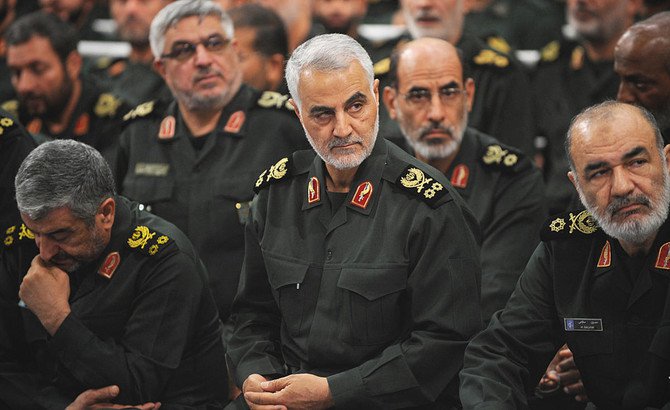Analysis/Iran May Soon Try to Provoke Israel to Gain the Upper Hand in Its Conflict With the U.S.
عاموس هاريل/الهآرتس: من المحتمل أن تستفز إيران قريباً إسرائيل ليكون لها اليد العليا في صراعها مع أميركا
Amos Harel/Haaretz/June 19/2019
Intelligence assessments suggest that Tehran might initiate a provocation along one of Israel’s borders in order to exacerbate the crisis, using one of the groups it operates in the region.
Iran may soon escalate its conflict with the United States, possibly choosing the Israeli border as the target, Israeli and Western intelligence sources say. They say Tehran is disappointed with its failure to force the Americans to reconsider the strong sanctions they’ve imposed on Iran and on companies doing business with the Islamic Republic, which have stoked a serious economic crisis.
Thus it has not been ruled out that the Iranians might opt for a provocation along the Israeli border, with the aim of worsening the atmosphere of regional crisis and urgently forcing the Trump administration to reexamine its steps.
Iran has been taking steps in the Persian Gulf since the start of May, in response to the harsher American sanctions that have badly weighed on its economy. According to assessments in Israel and the West, the Iranians were playing for time and hoping that U.S. President Donald Trump would eventually fail to win reelection in November 2020. This would lead to a softening of Washington’s aggressive policy toward Iran’s nuclear program, the thinking went.
The Iranian steps have included strikes on oil tankers in the Persian Gulf and drone strikes against Saudi oil sites (both without any claims of responsibility). These steps have revealed a changing trend: Tehran is stepping up its actions in the hope that the United States will return to the negotiating table. The Americans, however, have not responded in fear, and Trump has not yet been dragged into a war of threats with the Iranians.
The oil market has not responded with sharp price increases, which Iran all but desperately needs considering its dependency on oil exports. Matters didn’t change after the attack on a second tanker last week. Iran has denied any connection to the attacks and has hinted that they’re a provocation by another party trying to get Iran into trouble with the United States.
The only step the Americans have taken thus far is their statement Tuesday about sending another 1,000 troops to the Middle East because of the crisis. Russia has urged all sides to show restraint.
Because the crisis is moving slowly, Iran might decide to worsen it; for example, by dragging Israel into the heart of the developments. There’s the prospect of an indirect scenario involving an Iran-led group such as the Shi’ite militias in southern Syria, or perhaps an operation by Hezbollah or others in southern Lebanon.
“We caution Hezbollah not to subordinate Lebanon to Iran’s agenda, and we caution Lebanon not to be used as a launching pad for attacks against Israel,” President Reuven Rivlin said Tuesday.
“We are not happy to go to war, but the army is fully prepared to respond to any threat and any scenario. The State of Israel will not stand by idly. We will do everything necessary to ensure that Israeli citizens can continue to sleep quietly,” Rivlin said at Tel Aviv’s Nahalat Yitzhak Cemetery, speaking at the annual memorial for the victims of the 1948 Altalena incident.
This week the military is holding two large previously-planned exercises as part of its annual training. A large maneuver at the division level is being held in the north, with both regular and reservist forces taking part.
The air force is holding a large maneuver, too. Its head of training, Lt. Col. A., told reporters Tuesday that the exercise is for a scenario of fighting on several fronts, including many attacks during a short period, while providing large-scale support for the ground troops.
The air force is also testing its prowess against advanced air defenses including the S-300 and S-400 missile systems, as well as weapons and technology with which Hezbollah and the Syrian army have not yet armed themselves.
The security cabinet is meeting twice this week, unusual sessions during a period between two elections, and also considering that Prime Minister Benjamin Netanyahu is not an avid user of the forum. The second meeting is expected to be held on Wednesday afternoon.






















